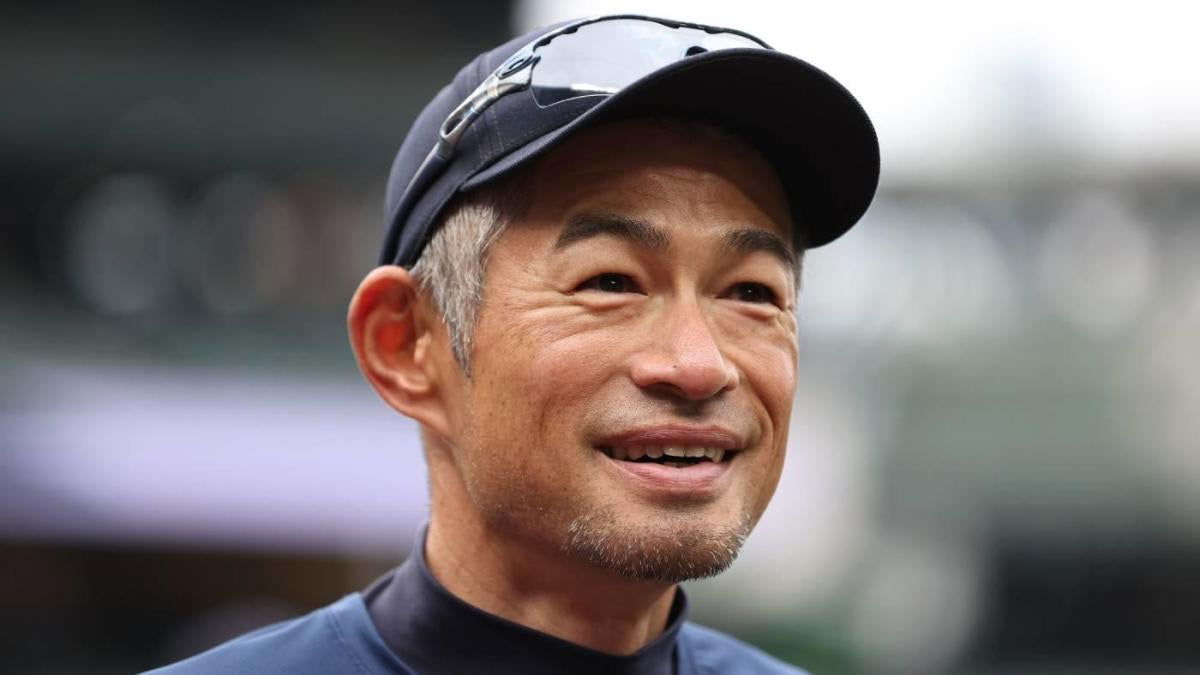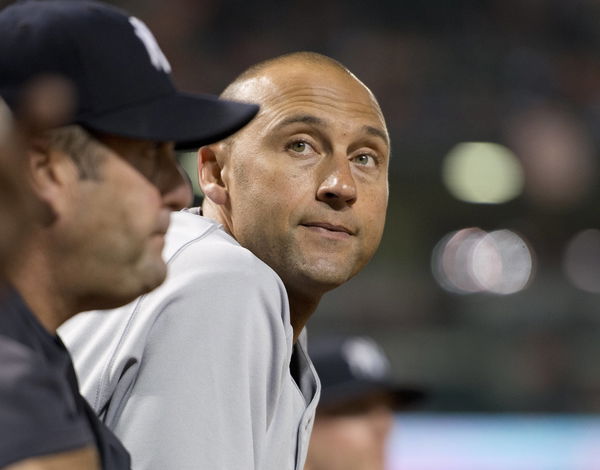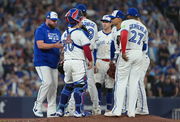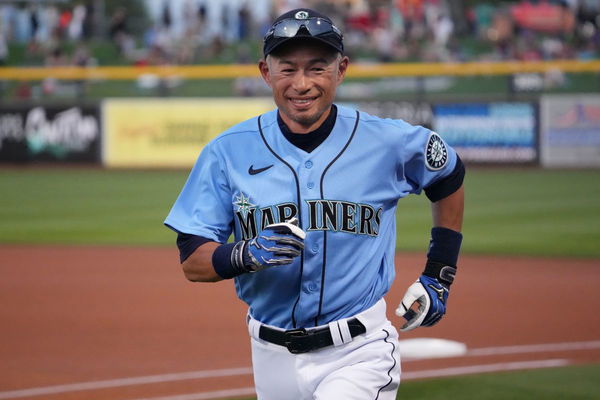

Every January, the MLB world seems to be rocked with one big debate—and no, it’s not about the wild moves happening in the off-season. Instead, all eyes are on the MLB Hall of Fame voting process. Over the past few years, it seems to be a huge cause of frustration and a lot of debate. The entire voting process is led by the Baseball Writers Association of America. And the process is secretive, and voters don’t have to reveal their selections. Although many do end up speaking about their ballot picks, it’s not a requirement.
Watch What’s Trending Now!
This lack of transparency seems to be an enormous problem. This season it’s back in full swing because of what’s happened with Ichiro Suzuki. The Japanese star was supposed to be the second major league baseball player to get into Cooperstown through unanimous votes. However, in the very end, it didn’t happen by a single ballot. The only one who managed this feat till now is Mariano Rivera back in 2019. This backlash happened even when Derek Jeter was inducted and with Suzuki, it has reignited in full swing again.
ADVERTISEMENT
Derek Jeter’s take on near-miss for Ichiro Suzuki
The lack of transparency even in the world today seems mind-boggling to many. Keeping voters’ identities secret is an outdated concept people want to be done with. Shouldn’t voters be accountable for their decisions? Suzuki is a legendary player, and he earned 393 out of the 394 votes. Bob Klapish, a writer for NJ Advance Media, claimed that the lone voter in this Ichiro case is “Clown of the Year.” Now this story isn’t new. Back in 2020, even Derek Jeter faced the same.

Imago
New York Yankees shortstop Derek Jeter 2 watches his team bat in the ninth inning against the Baltimore Orioles at Oriole Park at Camden Yards in Baltimore, MD on Wednesday, August 13, 2014. The Orioles won the game 5 – 3. Credit: Ron Sachs / CNP RESTRICTION: NO New York or New Jersey Newspapers or newspapers within a 75 mile radius of New York City EDITORIAL USE ONLY Copyright: xx x cnpphotos049841
The 5x World Series champion fell short by one vote too, just like Ichiro Suzuki. He was asked about what he feels about this entire situation on Friday. Derek Jeter told Fox News Digital, “A lot of players have been unbelievable that are in the Hall of Fame and haven’t gotten 100% of the vote. I never expected it, and I would never sit here and say everyone should’ve voted for me or everyone should have voted for Ichiro.” He added, “The only thing I do think is fair is that I think a lot of members of the media want athletes to be responsible and accountable; I think they should do the same thing.” But he did mention that he is just tired of being asked this question at this point.
ADVERTISEMENT
Should the voter’s ballots be made public?
Whether the Hall of Fame ballot should be made public is a huge topic. However, several players and commenters have called for transparency. Chatterbox Sports, for example, argued that the Hall of Fame ballot should indeed be made public on Twitter. “We unanimously agree that MLB Hall of Fame ballots should be transparent and made public. However, there should be a restriction preventing writers from sharing their ballots before the official announcement.” They are not just the only ones asking for transparency.
ADVERTISEMENT
We unanimously agree that MLB Hall of Fame ballots should be transparent and made public. However, there should be a restriction preventing writers from sharing their ballots before the official announcement. pic.twitter.com/m66XjJWQ2N
— Chatterbox Sports (@CBoxSports) January 24, 2025
Wes C, the former co-host of the Meyers and Wes show, thinks that the Hall of Fame voting body should be restructured. He wants a system in which 75% of the voters are maybe former players, coaches, and scouts. 25% is what he proposed to be media members. His argument is simple: those who have lived the game are in the best place to assess the player’s value. Media members, meanwhile, may not have the in-field experience to judge a player’s worth.
Top Stories
Blue Jays Ready to Show Exit Door to 3 Stars as Surprise Giants Trade Buzz Ignites, Per Insider

Massive Blue Jays Shakeup Incoming as Ross Atkins Refuses to Sacrifice Bo Bichette–Kyle Tucker, Deems Insider

MLB News: 23YO Dodgers Star Faces Crisis In Venezuela After U.S. Strike

Blue Jays Give Up on Alex Bregman as Ross Atkins Forced To Choose Between Bo Bichette & Kyle Tucker, Per Insider

Blue Jays’ Kazuma Okamoto Gamble Puts $3.5M World Series Star on Thin Ice as Ross Atkins Faces Tough Calls

However, for some, how many votes one gets doesn’t matter, like former MLB star CC Sabathia. He shared his thoughts recently too: “I don’t like worrying about who didn’t vote for who. I mean, he’s in the Hall of Fame now, so what difference does it make? You know, we spend so much time worried about the negative and, you know, why he didn’t vote for Ichiro Suzuki, but let’s talk about the 395 votes he did get and, you know, him going to Cooperstown.”
ADVERTISEMENT
And he does raise a valid point—Ichiro Suzuki is in the Hall of Fame regardless, so does it matter in the end? Also heads up—Ichiro doesn’t pay heed to that one missing vote. He has a proposition for the one who didn’t vote for him.
Ichiro maintains his grace even in chaos
Ichiro Suzuki is known to be the epitome of grace. And he once again proved that he lives up to that in how he handled this time of controversy. On January 24, during the Hall of Fame press conference, he addressed the lobe voter who didn’t select him, saying, “I was able to receive many votes from the writers, and I’m grateful for them, but there’s one writer that I wasn’t able to get a vote from. I would like to invite him over to my house, and we’ll have a drink together and have a good chat.”
ADVERTISEMENT

USA Today via Reuters
Mar 25, 2022; Peoria, Arizona, USA; Seattle Mariners special assistant coach Ichiro Suzuki looks on prior to the game against the Chicago White Sox at Peoria Sports Complex. Mandatory Credit: Joe Camporeale-USA TODAY Sports
Well, the former Seattle Mariners star’s ability to just laugh off the situation and focus on just the positive is commendable. And online, it has got him widespread adoration too. However, even though he downplayed the entire conversation, the question still is—why was he deprived? Ichiro’s career as a whole has been one of resilience and perfection. The first player to cross the Pacific and make it from Japan to play MLB in America. He paved the way with so many players who now are the big names in the sport, be it Shohei Ohtani or someone else.
Not to mention, he had to prove himself because not everyone believed a player of his weight and height could make it big. But he proved everyone wrong. Over his career, he amassed 3,089 hits, a .311 batting average, 10 Gold Glove awards, and two batting titles. Ichiro Suzuki’s Hall of Fame induction is huge not just for him and his former team but also for his country—Japan. He is the first Japanese player to enter the Hall of Fame.
ADVERTISEMENT
So what do you think? Should this flawed voting system need a change, a reform? Let us know your thoughts.
ADVERTISEMENT
ADVERTISEMENT
ADVERTISEMENT

